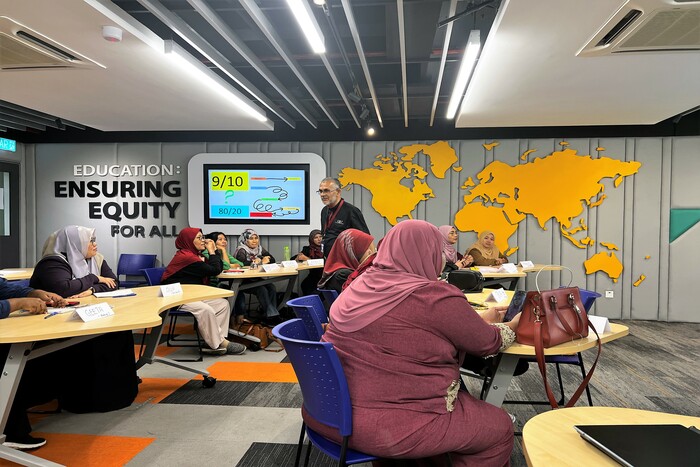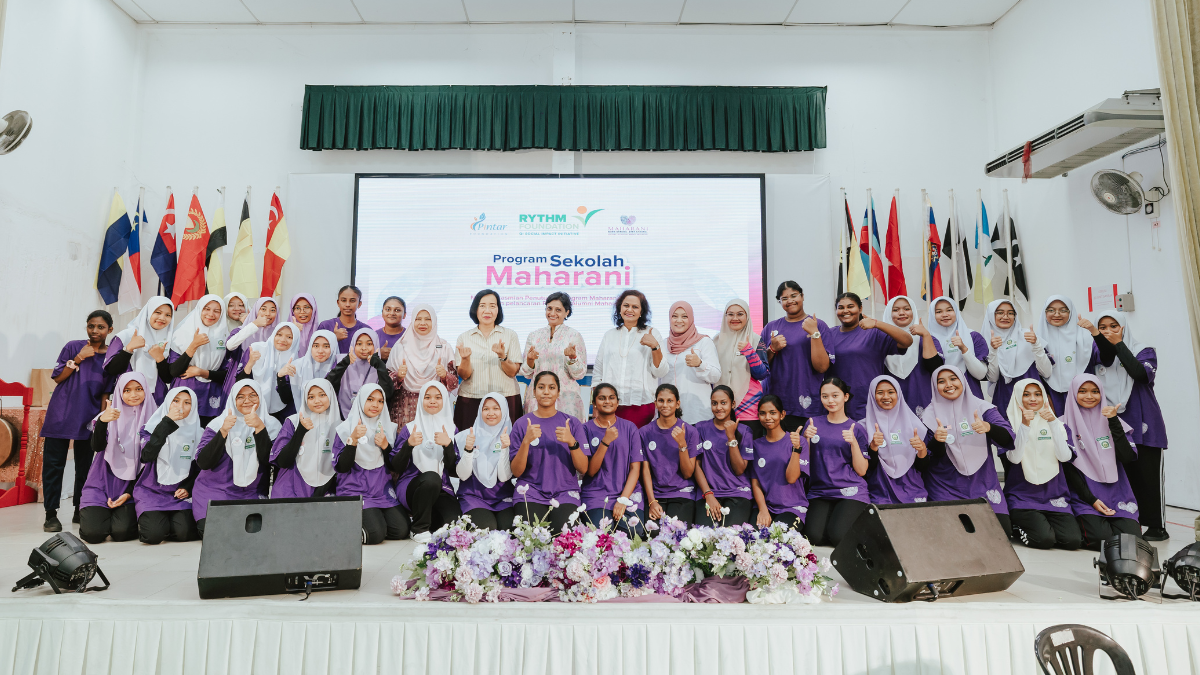Many single mothers in Malaysia live below the poverty line as they struggle to make ends meet. These sole providers – believed to be over 80% of single-parent families from the bottom 40% of income earners (B40 group) – are among the most economically vulnerable.
Factors like low income and education levels, unemployment, and lack of sufficient skills perpetuate poverty within the group. In addition, statistics show that those divorced, widowed, or abandoned by their breadwinning spouses account for nearly 1.7% of the population.
These households were also disproportionately affected by the COVID-19 crisis. For example, in 2020, the UN agencies UNICEF and UNFPA found that 68% of these families had no savings post-lockdowns.
The ‘Families on the Edge’ study on the impact of the pandemic on women and children in low-income urban families found the situation much worse for female-headed households. COVID-19 affected their ability to meet their basic living expenses, with nearly 40% reporting that they struggled to purchase enough food for their families and could not pay their bills on time.
Even women who had pivoted to becoming small-scale entrepreneurs and selling their products online struggled to hold on to their business after consumers’ diminished purchasing power impacted sales.
The A to Z of Business Guidance
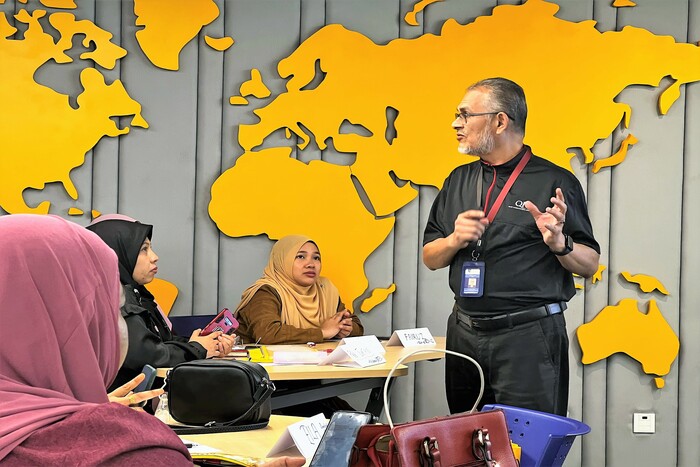
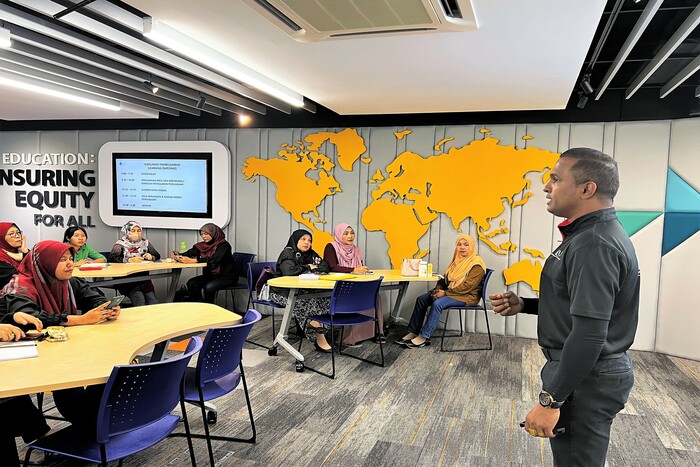
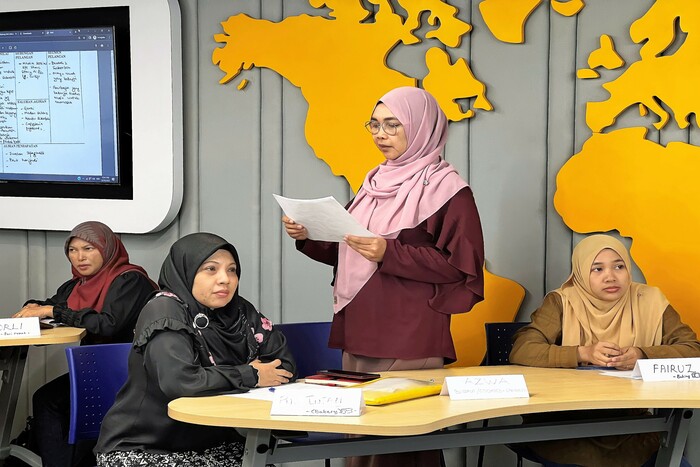
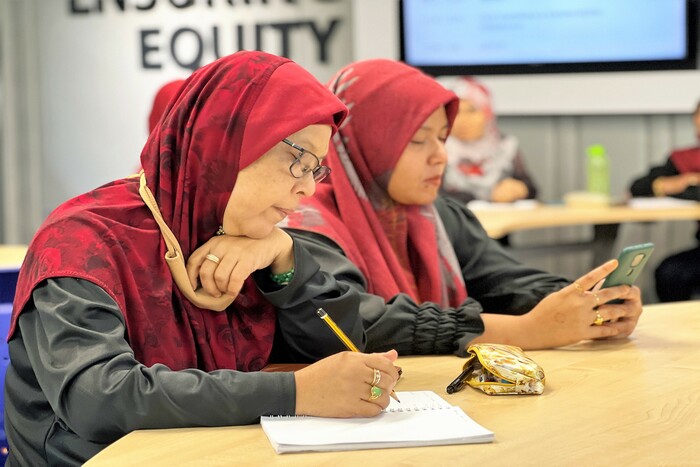
Mindful that low-income families need continued support to recover from the pandemic and economic downturn, Quest International University (QIU) recently kicked off a series of workshops for this susceptible group called “Womenpreneur A to Z.”
The series focuses on helping single mothers operating home-based micro-businesses train in skills like food preparation, digital marketing, financial literacy, and business development.
The latest free workshop welcomed 15 women operating various home-based enterprises. QIU worked closely with the state’s Women’s Development Department to identify the eligible participants. Also organised as part of QIU’s University Social Responsibility (USR) initiative, 10 employees were on hand to register the attendees, help them understand the presentations, and devise their business plans.
The free half-day seminar discussed how they could develop and expand their ventures, ranging from baked goods and fresh seafood to beauty products.
Over several months, the micro-entrepreneurs have learnt how to get started, source capital, and develop their endeavours. The most recent seminar in October covered the Business Model Canvas (BMC), a tool that visualises building blocks like customers, value proposition, and finance.
The Dean of QIU’s Faculty of Business and Management, Prof Dr Abdul Raheem Mohamad Yusof, and Head of the School of Accounting and Finance, Dr Tanaraj Krishna, conducted the lively and interactive session.
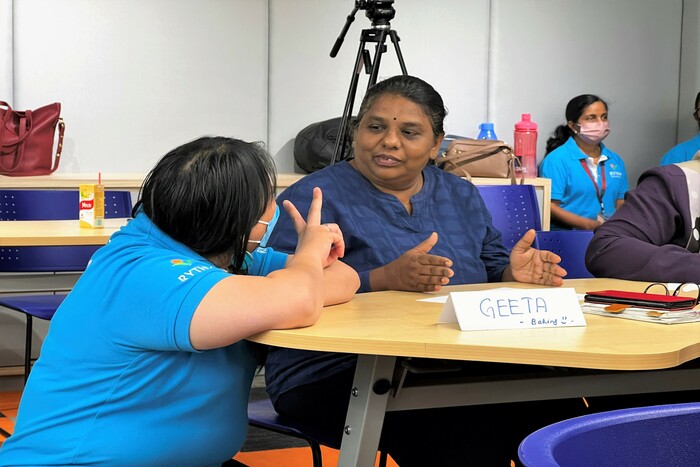
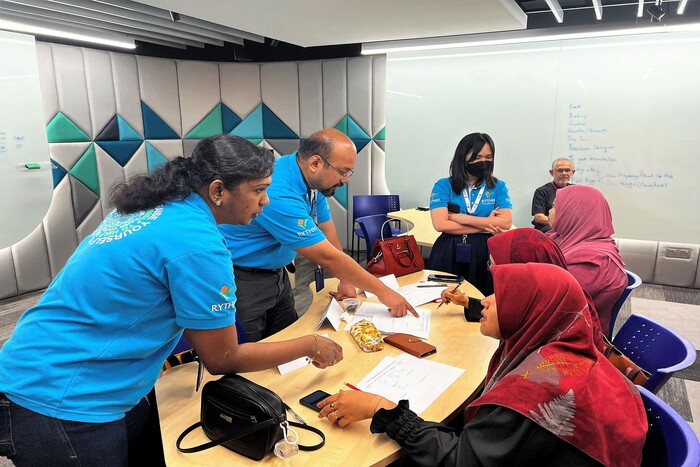
Valuable Lessons Learnt
The participants described the workshop as informative and comprehensive.
Intan, a baker and traditional Malay food caterer, said she had gained considerable knowledge after attending the Womenpreneur series. “I had limited before. However, since joining the workshops, I have become a better operator.
“Besides learning about taking my business only, I am now familiar with (design platform) Canva and social media sites,” Intan added.
Food caterer Geeta emerged from the workshop more assured about her abilities. “I previously relied on word of mouth with my food business. I did not try any online platform because I was not confident,” she says.
Geeta attended a few courses on online business but could not keep up. “However, the professors and staff today took the trouble to explain and show us how to use the platforms. They showed me a weakness in customer service. I know how to improve that aspect of my business now,” she added.
Ambitious entrepreneur Zulikhah Husna started with a stall selling Kelantanese food during the fasting month. After earning a decent profit, she was encouraged to sell fresh seafood online, including delicacies like fish and squid roe.
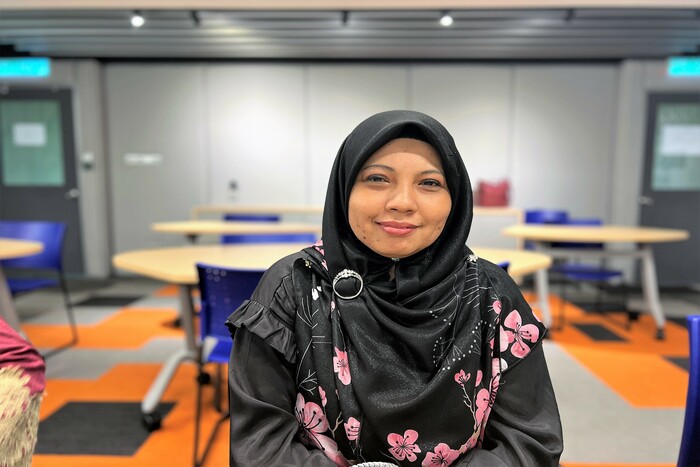
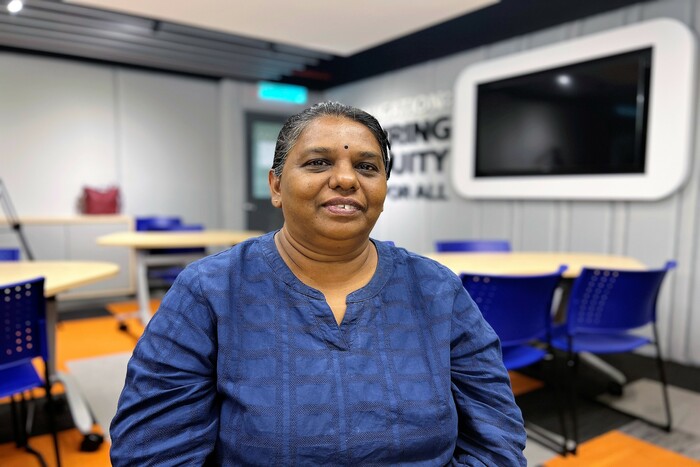
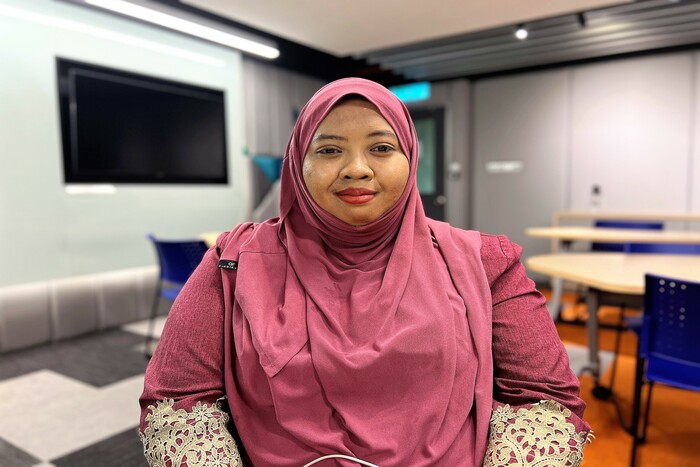
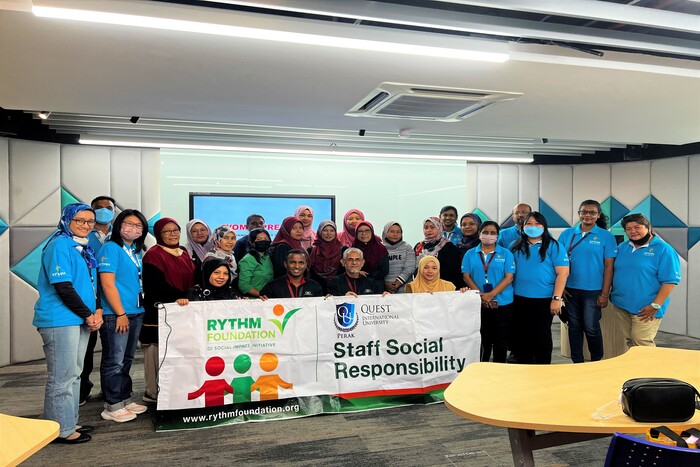
part of QIU’s University Social Responsibility (USR) initiative, as helpful.
“With God’s grace, my business is doing well. However, I have found it challenging to cater to a growing number of customers from around the country. As a result, I can only serve customers from surrounding areas like Ipoh, Kuala Kangsar, and Sungai Siput to maintain the freshness of my products,” Zulikhah explained.
“I appreciated the professors’ effort to address my challenges and guide us in preparing our respective BMCs. Even a small business like mine can benefit from proper planning and costing, which I did not consider before,” she added.
QIU established the series to create a project with an impactful continuity, the Deputy Director of the university’s Academic Affairs Division, Dr Suki Chin Sook Fui, said.
“We designed these practical courses to help single mothers become entrepreneurs and alleviate poverty among them while delivering solutions to the UN Sustainable Development Goals (SDGs) for ending poverty (SDG 1) and achieving gender equality (SDG 5),” Dr Suki explained.
The Ipoh-based QIU is the QI Group’s education venture. The institution is a comprehensive, research-led private university with global strategic links to deliver quality programmes and interdisciplinary research of international standing.

